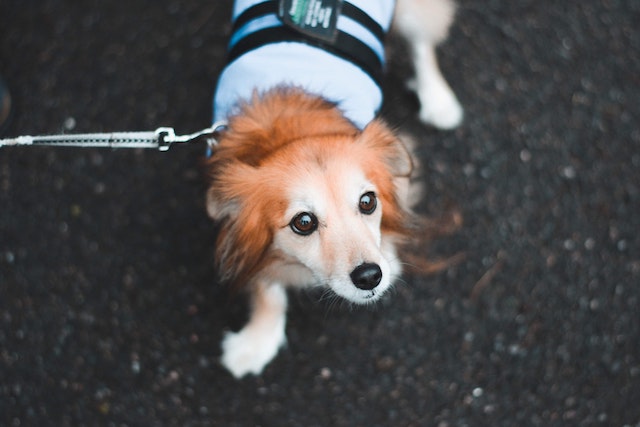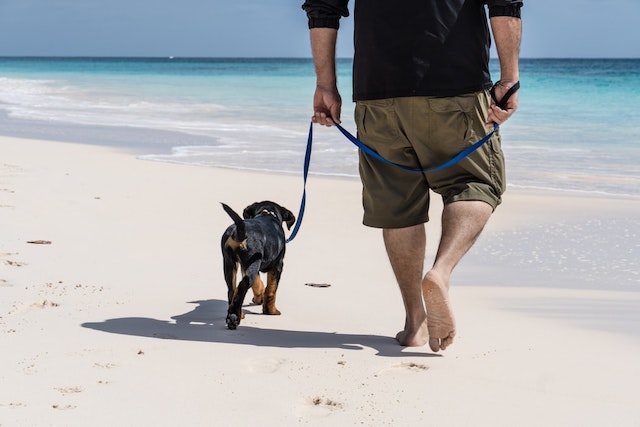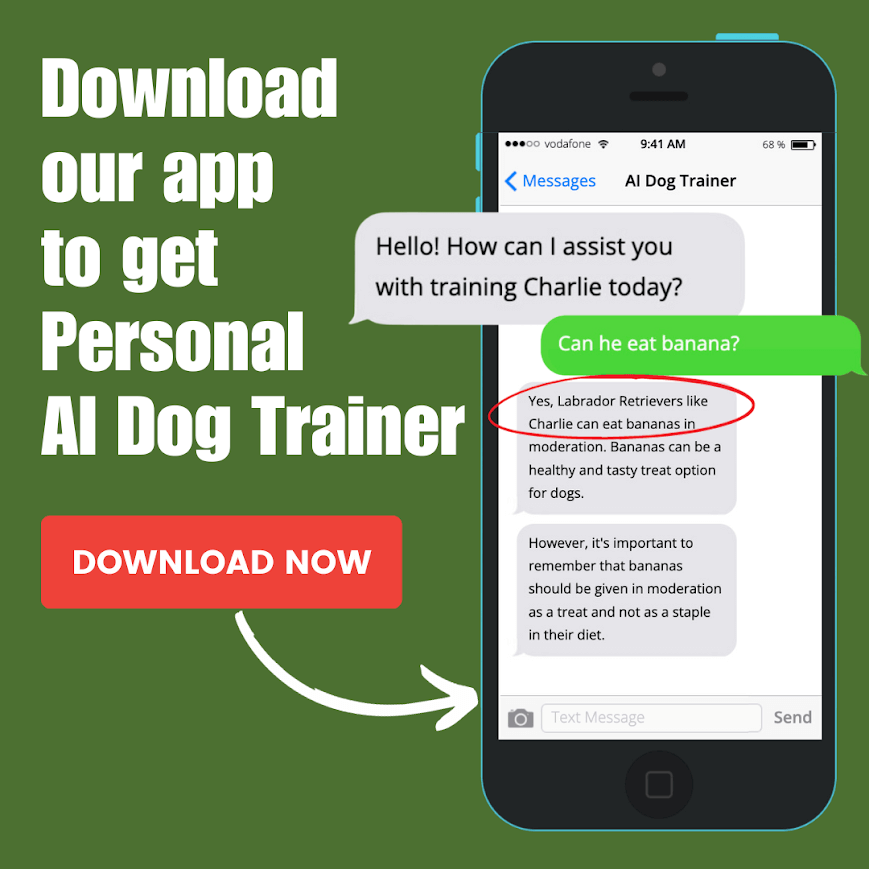Walking with your little pups is always mesmerising,
but it can put up a challenge if you cannot control your little fella.
It’s likely that he is going to get fully excited and run here and there.
Therefore, it is important to walk him on a leash, fortunately, it is not a hard skill to master.
With that being said, it does require patience and dedication to learn and master the skill.
You will have to put in a little effort. Brilliant!!
Make sure that you don’t get angry or frustrated in the process, remaining calm, and having patience are the first things to learn.
So here’s how to teach a puppy to walk on a leash.

Table of Contents
When to Start Training a Puppy to Walk on a Leash?
Before we get into teaching the pup walking on a leash, it is important to understand what age to start leash training a puppy. This is important especially for those who’ve never had dogs before. Ideally, you would want to start training your pup anywhere after from young as 10 weeks to 12weeks. When they are young they can learn more than we give them credit for. It also greatly depends on individual puppies but you can start to introduce them to wearing a collar from 4 to 6 weeks.
Read More About: Train an Older Dog to Walk on a Leash | Train Your Dog to Walk Without a Leash
How to Leash Train a Puppy?
When you are leash training your puppy it is important that you be patient and calm. There are no easy and fast rules, you have to go with the pace of your puppy and at the same time be more serene. Patience is the key here, just go with the flow and gradually the little fella will come along. Here’s how you can teach your puppy to walk on a leash.
Picking up the Right Leash and Collar
Now, this might seem the most basic step but having the right collar and leash will make your teaching process simpler and keep your pup feel more comfortable. There are a ton of different collars and leashes out there in the market, so initially, we would recommend opting for a light leash and flat light collar. You can change them accordingly once your puppy is all set and ready to go.
Acclimatizing him to the collar and leash
Once you have the right type of leash and collar it’s time to introduce them with a collar. Just put on the collar and let him play, try to distract his attention from the collar when you are putting it on him. The collar should be cozy yet not too tight that’ll make him feel uncomfortable. One thing to keep in mind is that initially, it will feel itchy to him, so he might start to scratch it. When he does this, make sure to take his attention off the collar by calling him, playing with him, or giving him a toy to play with so that he forgets about the collar.
Once he is acquainted with the collar that’s when you’ll gradually add a leash to it. Once again let him be a free bird, let him roam all over the place with the leash dragging, while doing so make sure that he doesn’t get tangled up with the leash. Then start picking up the leash slowly and call him, once he comes to you reward him with some treats. Develop this mentality in his mind that when you call him it is for some treat, that will keep him driven and motivated.
Reward him
While doing so you can also teach him a sound cue that will alert him that food is incoming. You can make clicking noises or do a tongue click. As soon as he reacts to your sound, reward him. Do this a few times, and you’ll notice that he will start coming at you. That’s the next step in leash training, making the puppy come towards you.
Let him come
Yes, let him react to your sound cue and come towards you, once he is coming, walk along with him with a few more steps and then reward him. The main reason for this is, it will make him get used to the leash while walking around. There are different ways to hold a dog leash. Just hold the end of the leash and call him, walk with him a little then reward him. Repeat this process till he gets familiarized with the same.
Indoor Practice
You have to practice with him inside your house considering now that he understands how to walk with a leash and collar. Try to walk with him in short spans, take a short walk inside and around your house. Carry some distractions like treats and toys, so the second he wanders around call him and reward him. Keep doing this until he is comfortable to walk with a leash and a collar on. One more thing to keep in mind is practicing heel walking, which means to train him to walk beside you. This will be really helpful in the long run, when he gets older.
Note: You can also learn about how to Train a Dog to Walk on a Leash Beside You.
Time to Test the Skills
Now, all set, it’s time to show him the real world. But this is challenging than it looks, it is important to start from a place where it is less distracting. Keep the walk short for the first few days, allow him to be supported from time to time as he encounters all the new things while his first walk. Make sure to carry some treats along, they will come in handy.
During the walk when you notice that he is about to lunge somewhere, quickly distract him with the treats or sound cue. Keep walking ahead of him and let him follow you whenever he gets lost somewhere. Once he follows you, you do what you’ve been doing, reward him. The little fella will be too excited to see new things, just let him render through the new information.
If you see that he is nervous or kinda upset just stop get down towards him and pet him. Let him adjust to the process of being on a leash.

Read More: Get a Stubborn Dog to Walk On a Leash | DIY Dog Leashes: Custom Ideas with Tutorials | How to Make a Dog Leash Out of Climbing Rope
Challenges While Leash Training a Puppy
It highly unlikely that the whole process of teaching your puppy is going to be this simple and straightforward, of course, there will be challenges. Just make sure that you remain calm and patient while your pup is exploring the world especially when he starts getting older and goes to different places. Here are some challenges that you’ll run into while your pup is walking on a leash with you.
Puppies Pulling on the Leash
The most common problem you’ll face is leash-pulling, this happens when he gets too excited and starts to run ahead of you while tugging you along. Now, if this kind of situation arises, the solution is simple, standstill. Yeah, stand like a tree without moving, soon he will realize that he cannot go further. That time you call him and as he follows you back, reward time.
Note: You can also read about how to Stop Dog from Pulling on a Leash here!
The other alternative to that would be to walk in the opposite direction so that it will drive him to catch up with you. If he still pulls the leash, relax it’s his first time. Don’t get angry, remember the first step, to be calm, and have patience. Simply just keep rewarding him for all the good behavior and soon he will realize how to walk along.
Puppies Lunging
When you will be walking with your puppy it is likely that he will start to lunge towards someone or something, when he is about to go to a place where you don’t want him to go. Call him, distract him with your treats and pet him, this will be common as any dog will get startled looking at something that he’s never seen before.
Reluctant to Walk
If he feels more controlled, he will start to resist walking and will hesitate. In this case, all you have to do is to walk a few steps ahead to call him with the sound cue and give him the treat. Just repeat the process till he starts loving the process. With serenity and consistency, he will start enjoying walking on a leash.
Puppies Barking
Another challenge you might face is that he will start to bark as soon as he sees some other dog or someone else. Though he will sound cute, this might become a habit. So it is better to call him by the sound cue and pet him while offering a treat. So every time he will bark, he will get this impression of turning towards you.
After many walks, you will slowly reduce to reward him with treats, and he will get used to it. That’s why it is important to be consistent so that he can easily acclimate with the things you want him to learn. As the saying goes “Slow and Steady, Wins the Race”.
FAQs About Leash Training a Puppy
When can I take my puppy out for a walk?
Well, it is recommended to take your puppy out for a walk after his vaccination schedules are over. Now, with that being said, the brand and the place of the vaccination can be a deciding factor for the amount of time it will take. Generally, you can expect when he is between 10weeks to 18weeks.
Which one is better for my puppy a collar or harness?
A harness would be a much better choice when it comes to the two of them. The thing with the collar is a puppy might choke himself and yet pull. So a harness is a safer alternative, you can switch to a collar once he gets a little older.
How can my puppy enjoy training?
This is important, to keep the training process fun and loving for the puppy. To make the training session enticing for your pup just pet him and reward him every time he performs well. You can call him with your sound cue then pet him and praise him, this will encourage him to perform better.
At what age I should train a puppy to heel?
You can start the heel training heel when your pup is four months, make sure that the puppy doesn’t get lost from the command. Remember that consistency is important and mistakes are bound to happen, just reward him every time he performs well.
Try Not to Stress
Relax, it takes time, dedication, calmness, and patience to train a puppy to walk on a leash. But when he learns it, we are sure that you two are going to enjoy the most memorable walks. You can also add more training routines like heel training and heel works that will help you when he gets older.
Make sure to reward, pet, and praise him every time he performs better and if he doesn’t you keep trying. Slowly, he will catch up with the pace and work along. Remember patience and consistency are key. Initially, it will be challenging but eventually, it will be easy, and he will walk nicely.
That said, we would love to hear which one of the tips worked well for you in the comment box below, also if you have any questions and doubts, make sure to ask them, we would love to reach out to you.
Also Read:
- How to Deal with Off-Leash Dogs?
- Retrieve A Dog That Has Got Off-Leash?
- How to Make a Paracord Dog Leash Using Cobra Stitch


